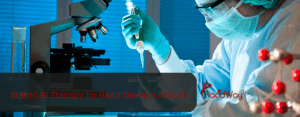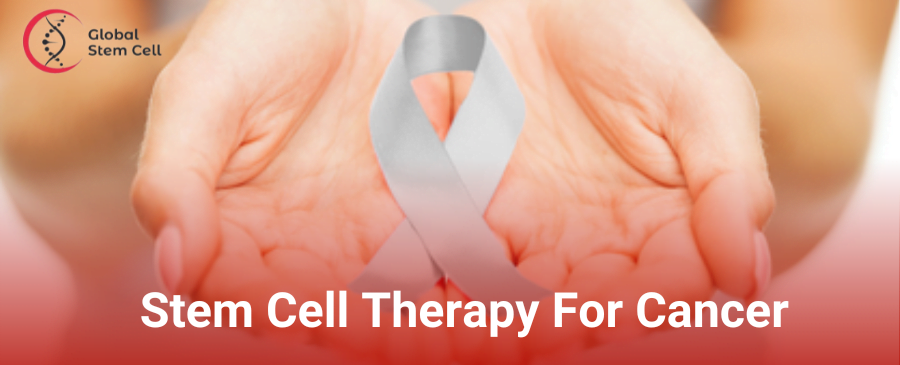Regenerative Medicine for Heart Disease Treatments
Table of Content
Regenerative medicine is a field of medicine that aims to repair or replace damaged or diseased tissues and organs. In the context of heart disease, regenerative medicine approaches may involve using stem cells or other types of cells to regenerate damaged heart tissue, or using tissue engineering techniques to create new heart tissue or to repair or replace damaged heart tissue.
There are several different approaches to regenerative medicine for heart disease, including:
- Stem cell therapy: This involves using stem cells, which are cells that have the ability to develop into different types of cells in the body, to regenerate damaged heart tissue. Stem cells may be obtained from a variety of sources, including bone marrow, fat tissue, and umbilical cord blood, and they can be injected into the damaged area of the heart to promote tissue repair.
- Tissue engineering: This approach involves creating new heart tissue or repairing damaged tissue using a combination of cells, scaffolds (structures that provide support for the cells), and growth factors (proteins that stimulate cell growth and differentiation). Tissue engineering techniques may involve using a patient’s own cells, or using cells from a donor.
- Gene therapy: This approach involves using genes to repair or replace damaged or mutated genes that may contribute to heart disease. Gene therapy may involve introducing healthy copies of a specific gene into cells, or using gene editing techniques to modify the DNA of cells in order to correct a genetic mutation.
Affected Heart Conditions
There are several conditions that may result in affecting the heart. Such conditions are termed as heart diseases, which also include blood vessel diseases such as congenital heart defects, heart rhythm problems, coronary artery disease and more.
Different Heart Disease Types
Heart diseases generally develop over a course of time. That is why many people experience such problems in the later stages of their lives. However, it does not mean that hear diseases can never appear at a young age. Take a look at some of the common types of heart diseases:
- Heart Attack (Myocardial Infarction)
- Silent Ischemia
- Coronary Artery Disease
- Heart Failure
- Angina
- Peripheral Arterial Disease
- Arrhythmia
What are the Common Symptoms of Heart Diseases?
Heart disease symptoms in your blood vessels (atherosclerotic disease):
- Discomfort in chest
- Chest pressure
- Chest tightness
- Chest pain
- Shortness of breath
- If the blood vessels in your arms or legs are narrowed, you will feel pain, numbness, weakness or coldness in those body parts
- Pain in the throat, jaw, neck, upper abdomen or back
Heart Disease Symptoms Caused due to Heart Arrhythmias or Abnormal Heartbeats
- Racing heartbeat (tachycardia)
- Fluttering in your chest
- Chest pain or discomfort
- Slow heartbeat (bradycardia)
- Lightheadedness
- Shortness of breath
- Dizziness
- Fainting (syncope) or near fainting
If Heart Defects Causes heart disease the Symptoms will be:
- Swelling in the legs, abdomen or areas around the eyes
- Pale gray or blue skin color (cyanosis)
- Easily getting short of breath during exercise or activity
- In an infant, shortness of breath during feedings, leading to poor weight gain
- Swelling in the hands, ankles or feet
- Easily tiring during exercise or activity
Symptoms of Heart Disease due to Weak Heart Muscle (dilated cardiomyopathy)
- Swelling of the legs, ankles and feet
- Breathlessness with exertion or at rest
- Fatigue
- Dizziness, lightheadedness and fainting
- Irregular heartbeats that feel rapid, pounding or fluttering
Heart Infection Generated Heart Disease Symptoms
- Shortness of breath
- Fever
- Swelling in your legs or abdomen
- Weakness or fatigue
- Dry or persistent cough
- Changes in your heart rhythm
- Skin rashes or unusual spots
Heart Disease Symptoms due to Valvular Heart Disease
- Shortness of breath
- Fatigue
- Swollen feet or ankles
- Irregular heartbeat
- Fainting (syncope)
- Chest pain
What are the Major Heart Disease Causes:
- Heart defects you’re born with (congenital heart defects)
- High blood pressure
- Coronary artery disease
- Smoking
- Diabetes
- Drug abuse
- Excessive use of alcohol or caffeine
- Stress
- Some prescription medications, over-the-counter medications, dietary supplements and herbal remedies
- Valvular heart disease
Heart Disease Treatment with Stem Cell Therapy
Lots of studies and research works are being conducted to establish stem cell therapy as an effective treatment alternative for heart diseases. Stem cells have the ability heal heart muscle by initiating cascading biological events and healing damaged areas.
Stem cells can replace innumerous cells of the body, which also includes heart tissue. The aim of stem cell treatment is to replace damaged cells, regenerate new ones and suppress the immune system’s macrophage response which engulf and digest the dying cells of the heart.
Both mature cells and embryonic stem cells that are manipulated back to a stem cell state can be harnessed for creating new heart cells. The only drawback is that the heart cells made with stem cells resemble the heart cells of an infant, rather than adult heart cells. To function in adult hearts, the new heart cells must mature and then be able to survive within the constantly beating environment of the heart.
FAQs about Regenerative Medicine for Heart Disease Treatments
What are the potential benefits of regenerative medicine for heart disease?
The potential benefits of regenerative medicine for heart disease include:
- Repairing or replacing damaged heart tissue, which may improve heart function and quality of life
- Reducing the need for heart transplantation or other invasive procedures
- Providing a more personalized approach to treatment, as regenerative medicine approaches may involve using a patient’s own cells or tissues
What are the risks and limitations of regenerative medicine for heart disease?
Some of the risks and limitations of regenerative medicine for heart disease include:
- The potential for side effects, such as an immune response to the injected cells or tissues
- The potential for the cells or tissues to grow or differentiate in an uncontrolled manner, which could lead to the development of tumors or other complications
- The need for additional research to fully understand the safety and effectiveness of these approaches
- The potential cost of these treatments, which may not be covered by insurance
How much stem cells are effective in the treatment of heart diseases?
The optimal number of stem cells for use in the treatment of heart disease is currently not well established and may depend on a number of factors, including the specific type of stem cells used, the stage and severity of the heart disease, and the patient’s overall health.
In general, clinical studies of stem cell therapy for heart disease have used a range of doses, with some studies using as few as 10 million cells and others using up to 100 million cells. The specific number of cells used in a given treatment may depend on the goals of the therapy and the resources available.
It is important to note that the use of stem cells for the treatment of heart disease is still a relatively new field, and more research is needed to determine the optimal dose of stem cells for different patient populations and types of heart disease. It is also important to speak with a healthcare provider to understand the potential risks and benefits of stem cell therapy and to determine whether it may be an appropriate treatment option.
Is regenerative medicine for heart disease available now?
While regenerative medicine approaches hold great promise for the treatment of heart disease, many of these approaches are still in the early stages of development and may not yet be widely available as treatments. It is important to speak with a healthcare provider to understand the current availability of these treatments and whether they may be an appropriate option for a specific individual.
If you are already suffering from a heart disease and want to know how stem cell therapy can help you and want more information about stem cell clinics, feel free to contact us and find out more.







